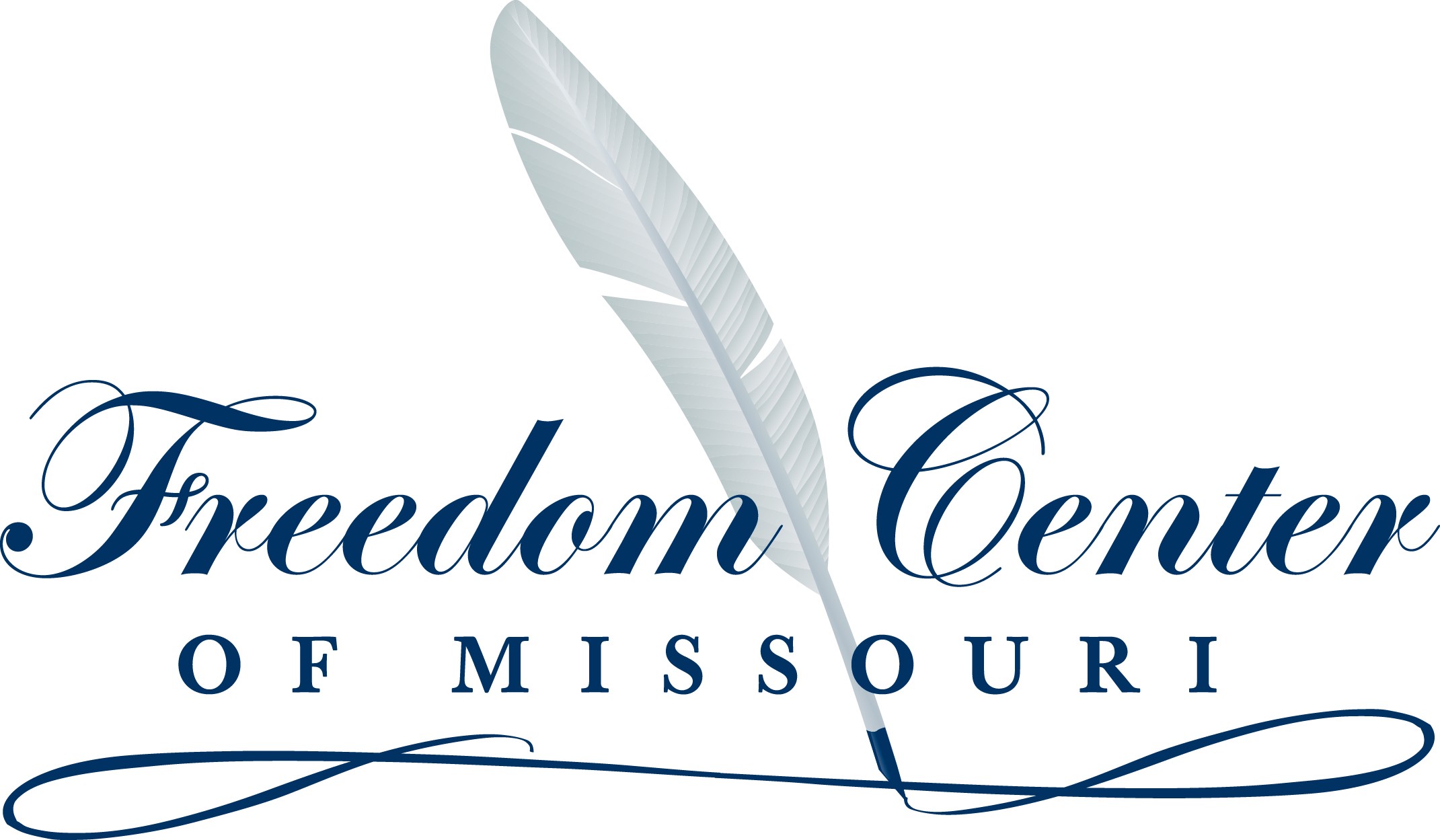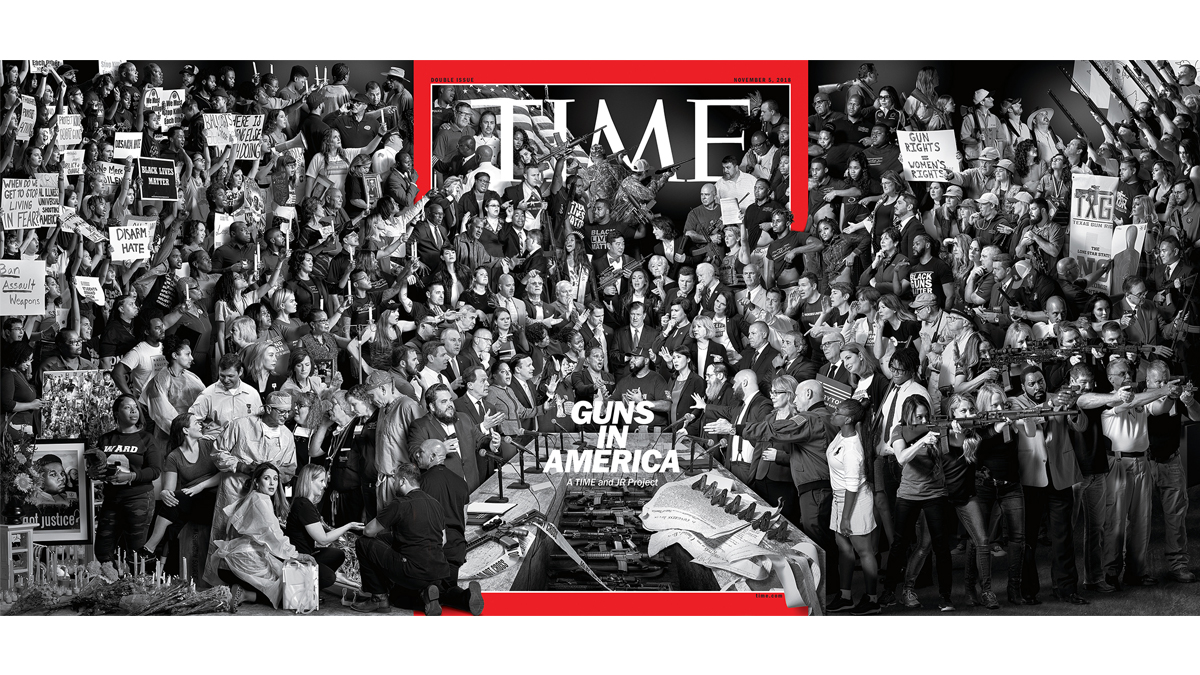A couple of months ago Dave Roland, the Freedom Center of Missouri’s director of litigation, was invited to take part in a special project by Time Magazine. French photographic artist JR would take pictures of a couple hundred people from all sides of the debate on firearms in America, then allow them – in their own words – to explain their perspective. The photographs would then be woven into an interactive mural. A still version of the mural would be featured on the cover of the magazine, then then website would host a version in which viewers could click on individuals in the mural to hear what that person had to say. JR would also create a fully animated version of the mural that would then be displayed in cities all over the country in hopes of fostering public discussion about this topic.
The project, called “Guns in America” debuted on October 25, when CBS This Morning interviewed JR and Time editor-in-chief Edward Felsenthal and the website devoted to the project went live.

Dave is very proud to have been part of this project, and especially with the way his audio statement came out. We hope you will take a few minutes to look at the online version of the mural, click on Dave’s picture (he’s the bald, bearded gentleman in a suit and suspenders in the front row of the mural) and also to listen to his statement – we think you’ll be proud, too. This is precisely the kind of thoughtful, compassionate, informative conversation about constitutional freedoms that the Freedom Center has always hoped to foster.
If you’d prefer to read his statement rather than listen to it, here is a transcript of what he had to say:
“My name is Dave Roland, and I’m the director of litigation for a non-profit, non-partisan litigation center called the Freedom Center of Missouri. One of the things that I think is most important about the work that I do is that I try to help facilitate conversations among people who sometimes have wildly opposing viewpoints. What I try and help all sides do is understand that there are reasons that the people on the other side believe the things that they do and that it’s not necessarily a commentary on their character, but rather just a different perspective on how we can achieve the social goals that we all share. Ultimately, we all want the people in our society to be safe, and we want them to be prosperous; we all just have very different ideas about how to reach that end, how to achieve that goal.
“And so when I talk to people I try and, number one, try and understand where they’re coming from, understand that their life experiences have fed into the perspectives that they hold and I understand that it’s very important to respect that. Then, secondly, I try to help them understand my own perspectives and how I have reached those. The hope is that in the course of that conversation they’ll be able to see people who disagree with them with a level of humanity that they might have overlooked before. Rather than simply being the face of the opposition, the opponent, they’ll see them as human beings, and that makes it a lot harder to be hostile and a lot more difficult to discount the perspectives that they bring to the table.
“As for my own perspective, I’m a libertarian. Part of the reason that I am is I look at the history of civilization and I see that when one group of people is given power over others, almost inevitably that power is abused. So my own perspective is to limit the power of government, and to allow citizens to express themselves and engage in the widest degree of freedom they can without harming others. How that plays into this particular issue is when we look even into American history, it has been dangerous to be part of a minority–whether that’s a racial minority, an ethnic minority, or even just a minority of opinion. I believe that the right of self-defense is crucial to make sure that people who hold minority perspectives will always be able to protect themselves if and when the people who hold authority or power decide to turn and use violence against them.
“There are certainly costs that come with that form of liberty, but my experience and my observation suggests that the costs, however dreadful in certain circumstances, are ultimately better than the costs we would face if we deprived people of the ability to defend themselves. That’s why I think this is a crucial conversation for us all to have. But I do hope we will be able to have it with a level of empathy, seeing each other as human beings with good intentions rather than enemies to destroy.”

